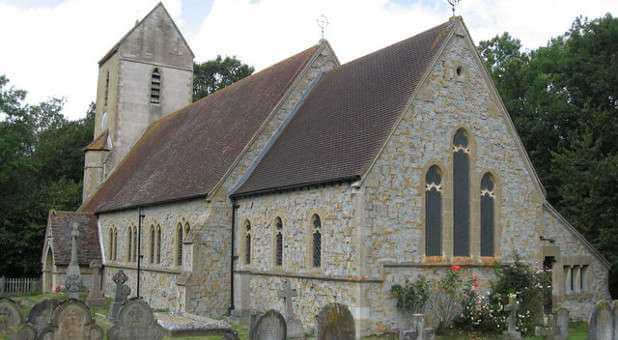Did you know that the King James Version was not the first English translation of the Bible, but the Tyndale Bible was in 1526? What is interesting is that Tyndale never translated the Greek word ecclesia as church, but congregation (congregacion).
He does use the word ‘church’ twice, but only in reference to pagan temples (see Acts 14:13, 19:37). Ecclesia is not used in either of these verses. So, according to Tyndale, a congregation was people who are holy and churches were buildings for religious purposes, including pagan temples.
Churches Are Buildings
The Greek word for church is kyriakos and does not appear in the New Testament. It dates back to the third century—meaning it did not exist when the New Testament was written. It comes from the Greek word (meaning “belonging to the Lord”). Sometime in the 300s, people began to refer to buildings where believers met as kyriakos or churches (About the time that the anti-Semitic Roman Emperor Constantine began building structures for Christians). And then, the body of believers themselves started to be called “the church.”
Of course, in common vernacular, most of the world associates churches with buildings.
The fact that church (kyiakos) does not appear in the New Testament must be the reason Tyndale refused to use it. However, when King James authorized a new translation (in 1611), one of the rules was that the ecclesia would not be translated congregation, but church. Why—maybe because they wanted to be consistent with common practice, or maybe it was more sinister—was congregation too Jewish? Let’s remember they also translated Yeshua’s brother Jacob as James. Then again, Tyndale also translated Jacob as James.
Ecclesia (the word that is translated ‘church’ in your Bible) is not a religious word. In Acts 19, it refers to a town council. In verses 32, 39 and 41 the KJV correctly translates the word as assembly, referring to the meeting of the council. However, the more than 100 other times that ecclesia appears in the New Testament, translators simply changed the word to kyriakos or church. In the same way that believers were part of The Way.
‘Way,’ though a general word, becomes a specific word—a proper noun. Ecclesia simply means “those called to a regular gathering.” For years, believers have said it means “called-out ones”—as in, called out from the world. While I like that, in truth, it means called out to gather for any purpose, as in Acts 19.
Is it possible that the New Testament seeks to elevate the meaning of ecclesia, adding a spiritual definition? Sure, in the same way a house can be white without being the White House, but still, the word ‘church’ is nowhere in the texts.
Kehila—Community
The Hebrew word used for ecclesia in my Hebrew New Testament is kehila, or community/congregation. This, in my opinion, is a much better word, because the community is people no matter where they meet. The New Testament congregation is a spiritual house made of people, as Simon Peter says, “you also, like living stones, are being built into a spiritual house” (1 Pet. 2:5). In addition, as pointed out by one of my readers, the Old Testament book that we call Ecclesiastes (from ecclesia) in Hebrew is Kohelet. Kohelet comes from the word kehila or kahal (gathering; audience).
Community is also a more Jewish-friendly term. Most Jewish people would not step foot in a church, but they might come to your community or gathering (especially if the meeting is in a non-religious building, like a home).
I am not maintaining that there was a conspiracy (although, there may have been), but rather that because ecclesia was not a religious word and the new word ‘church’ did have a religious connotation, it became the dominant word. However, I think that the word ecclesia (assembly) is a perfect word because at the end of the day, the body of believers is a living community of people, not a building, and that is the word in the New Testament, not church.
Is This a Big Deal?
As long as we know to whom we are referring—the people of God—then maybe not. But the confusion that remains today over whether church is a building or a group of people stems from the fact kyriakos are buildings, not gatherings, while the ecclesia are people.
In addition, because the construction of historic church buildings (that the New Testament never encourages us to build) are so closely connected with Christian animosity towards Jews, the less charged word—community, may be preferable.
You tell me. Do you think it is a big deal? Use the comments area below to share your answer.
Editor’s note: William Tyndale died for his faith, as he was executed in 1536, while the KJV had the backing of King James … who do you think was more trustworthy?
Ron Cantor is the director of Messiah’s Mandate International in Israel, a Messianic Ministry dedicated to taking the message of Jesus from Israel to the ends of the earth (Acts 1:8). Ron also travels internationally teaching on the Jewish roots of the New Testament. He serves on the pastoral team of Tiferet Yeshua, a Hebrew-speaking congregation in Tel Aviv. His newest book, Identity Theft, will be released on April 16. Follow him at @RonSCantor on Twitter.















































